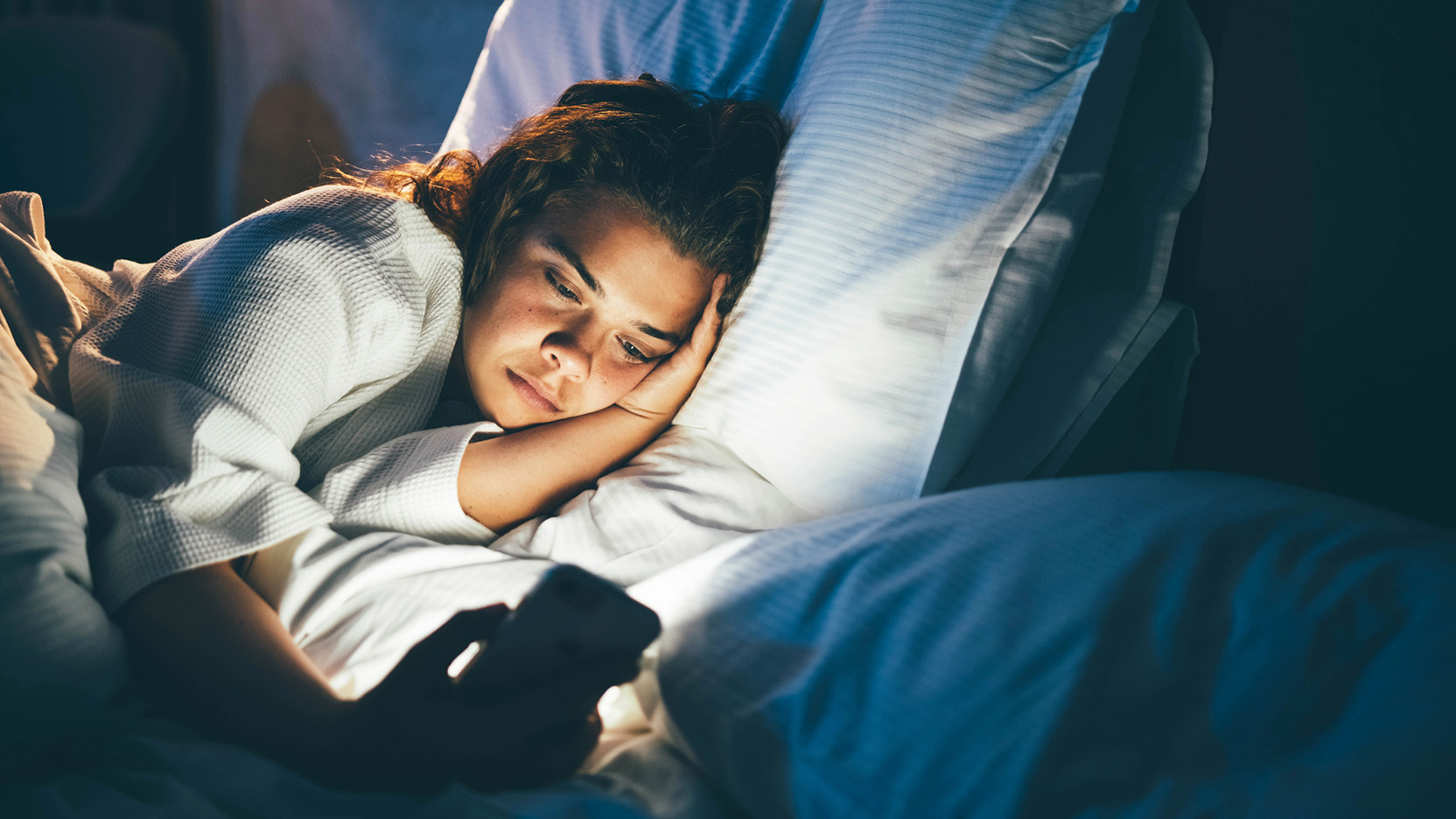Screens and Your Sleep
In our 24/7 society, cell phones, computers and other electronic devices play a large part in how we work, play and keep in touch. According to the National Sleep Foundation, more than half of Americans regularly use an electronic device in the hour before they go to bed. But all that screen time may be harming our sleep.
Joanna Cooper, M.D., a neurologist and sleep medicine specialist with Sutter, says bright screens stimulate the part of our brain designed to keep us awake. Looking at a brightly lit screen prior to sleep can make for a restless night.
“The timing of sleep and wakefulness is controlled by two areas in the brain. One is highly sensitive to light and wakefulness. The other, called the pineal gland, secretes the sleep hormone melatonin when the light dims in the evening,” Dr. Cooper says.

Device screens produce blue light, Dr. Cooper says, which is the part of the light spectrum most active in our sleep cycle. Stimulation of this part of the brain suppresses production of melatonin, making it difficult for many people to “turn off” their brains and fall asleep.
“The light from our screens can delay our transition to sleep, even if we are engaged in some soothing activity online,” Dr. Cooper says. “But it’s more likely that our evening texting, television shows or video games are stimulating in themselves, keeping the brain busy and wound up, and even causing adrenaline rushes instead of calm.”
Not getting enough sleep or having poor sleep quality has been linked to other health problems such as heart disease, diabetes, high blood pressure, depression and obesity. Ongoing sleep deprivation can lead to excessive daytime sleepiness, a loss of the ability to concentrate and difficulty performing daily tasks. While no one wants these adverse side effects, it can be difficult to prioritize your health needs over sending that one last email.
How Much Is Too Much?
Studies show two or more hours of screen time in the evening can seriously disrupt the melatonin surge needed to fall asleep. Consider turning off all electronic devices at least one hour before bed, at a minimum. Try reading a book, taking a bath or doing some other type of relaxing activity.
If you must text or scroll at night, reduce your exposure to blue light by turning down the brightness or switching your device to nighttime mode in the late evening. There are downloadable apps that can help you adjust screen brightness based on the time of day.
Limiting screen time for kids is also vital for their sleep. The American Academy of Pediatrics recommends keeping electronics out of children’s and teenagers’ bedrooms to ensure no late-night gaming or texting takes place. Setting up charging stations outside bedrooms can help.
Tips for Getting Better Sleep
In addition to turning off electronics at least an hour before bed, practicing good sleep hygiene habits can help you catch more z’s. Consult this checklist for tips on how to get a better night’s sleep. Top of the list? Maintaining a consistent sleep routine.
If a few weeks pass and you’re still struggling to get quality sleep, you may have insomnia or another type of sleep disorder. Call your doctor to set up an appointment. Before your appointment, use a sleep log to track your sleep patterns, including how many hours of sleep you get each night. This will help your doctor formulate the best treatment plan for you.





